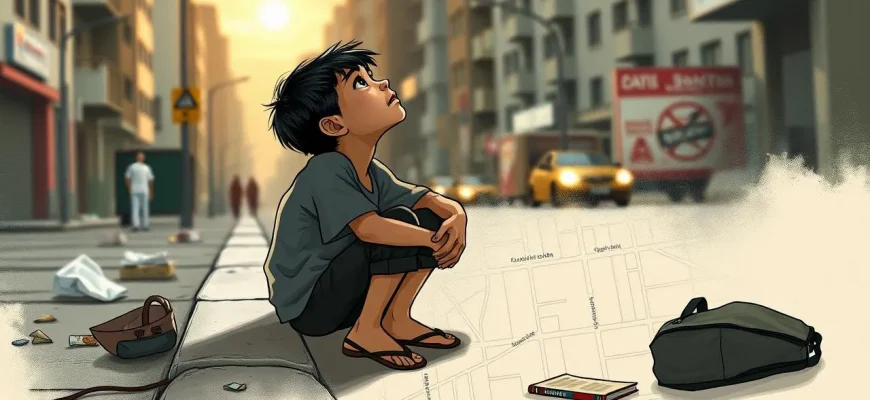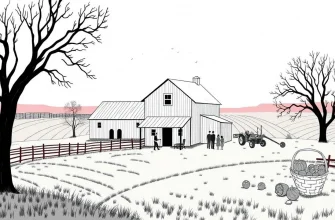The world of street children is often harsh, filled with stories of survival, resilience, and sometimes, redemption. These films delve into the lives of those who navigate the urban jungle without the safety net of a stable home. Each movie in this collection not only sheds light on the struggles of these young souls but also celebrates their spirit and the occasional glimmers of hope that pierce through their challenging existence. Here are 10 films that capture the essence of life on the streets, offering both a mirror to society and a window into the hearts of those often overlooked.

The Kid (1921)
Description: Charlie Chaplin's silent film classic where he plays a tramp who takes in an abandoned child, offering a heartwarming look at the bond between a street urchin and his unlikely guardian.
Fact: This was Chaplin's first feature-length film and introduced his character, The Tramp, to a feature-length audience.
 Watch Now
Watch Now 
Pixote (1981)
Description: A Brazilian film about a young boy named Pixote who escapes from a juvenile detention center and lives on the streets, engaging in crime to survive. It's a grim portrayal of street life in Brazil.
Fact: The film was controversial for its depiction of child prostitution and was banned in several countries.
 Watch Now
Watch Now 
Streetwise (1984)
Description: This documentary captures the lives of homeless and runaway teenagers in Seattle, offering a raw and compassionate look at their daily struggles and dreams.
Fact: The film was nominated for an Academy Award for Best Documentary Feature and inspired the book "Streetwise" by Mary Ellen Mark.
 Watch Now
Watch Now 
City of God (2002)
Description: Set in the slums of Rio de Janeiro, this Brazilian film follows two boys growing up in the 'City of God,' one becoming a photographer and the other a drug dealer. It's a raw depiction of how street life can shape destinies.
Fact: The film was shot in real favelas, and many of the actors were actual residents of these communities. It was nominated for four Academy Awards.
 Watch Now
Watch Now 
The Kite Runner (2007)
Description: Based on the novel by Khaled Hosseini, this film explores the friendship between two boys in Kabul, one of whom ends up living on the streets after political upheaval. It's a story of guilt, redemption, and the bonds that transcend class.
Fact: The film was shot in China due to security concerns in Afghanistan, and the young actors learned to fly kites for their roles.
 Watch Now
Watch Now 
Salaam Bombay! (1988)
Description: This Indian film tells the story of Krishna, a young boy who ends up on the streets of Bombay after being sent away from home. It's a poignant look at the lives of street children in India.
Fact: The film won the Camera d'Or at the Cannes Film Festival and was nominated for an Academy Award for Best Foreign Language Film.
 30 Days Free
30 Days Free 
Oliver Twist (2005)
Description: This adaptation of Charles Dickens' classic novel focuses on Oliver, an orphan who falls in with a gang of pickpockets in Victorian London. It's a timeless tale of a street child's struggle for a better life.
Fact: Directed by Roman Polanski, this version is noted for its gritty realism and faithful adaptation of the source material.
 30 Days Free
30 Days Free 
Slumdog Millionaire (2008)
Description: While not exclusively about street kids, this film features a young boy, Jamal, who navigates life in the slums of Mumbai, eventually finding success on a game show. It's a tale of hope and the resilience of street children.
Fact: The film won eight Academy Awards, including Best Picture, and was adapted from the novel "Q & A" by Vikas Swarup.
 30 Days Free
30 Days Free 
The Children of Leningradsky (2005)
Description: A documentary that follows the lives of homeless children living in the Leningradsky railway station in Moscow, offering a stark look at the reality of street life in Russia.
Fact: The film won several awards at international film festivals and provides an unfiltered view of the children's lives.
 30 Days Free
30 Days Free 
The Road Home (1999)
Description: While not solely about street children, this Chinese film includes scenes of a young boy's journey home, highlighting the challenges faced by those without a stable home environment.
Fact: The film was Zhang Yimou's first venture into a more commercial style of filmmaking, moving away from his earlier, more politically charged works.
 30 Days Free
30 Days Free 








